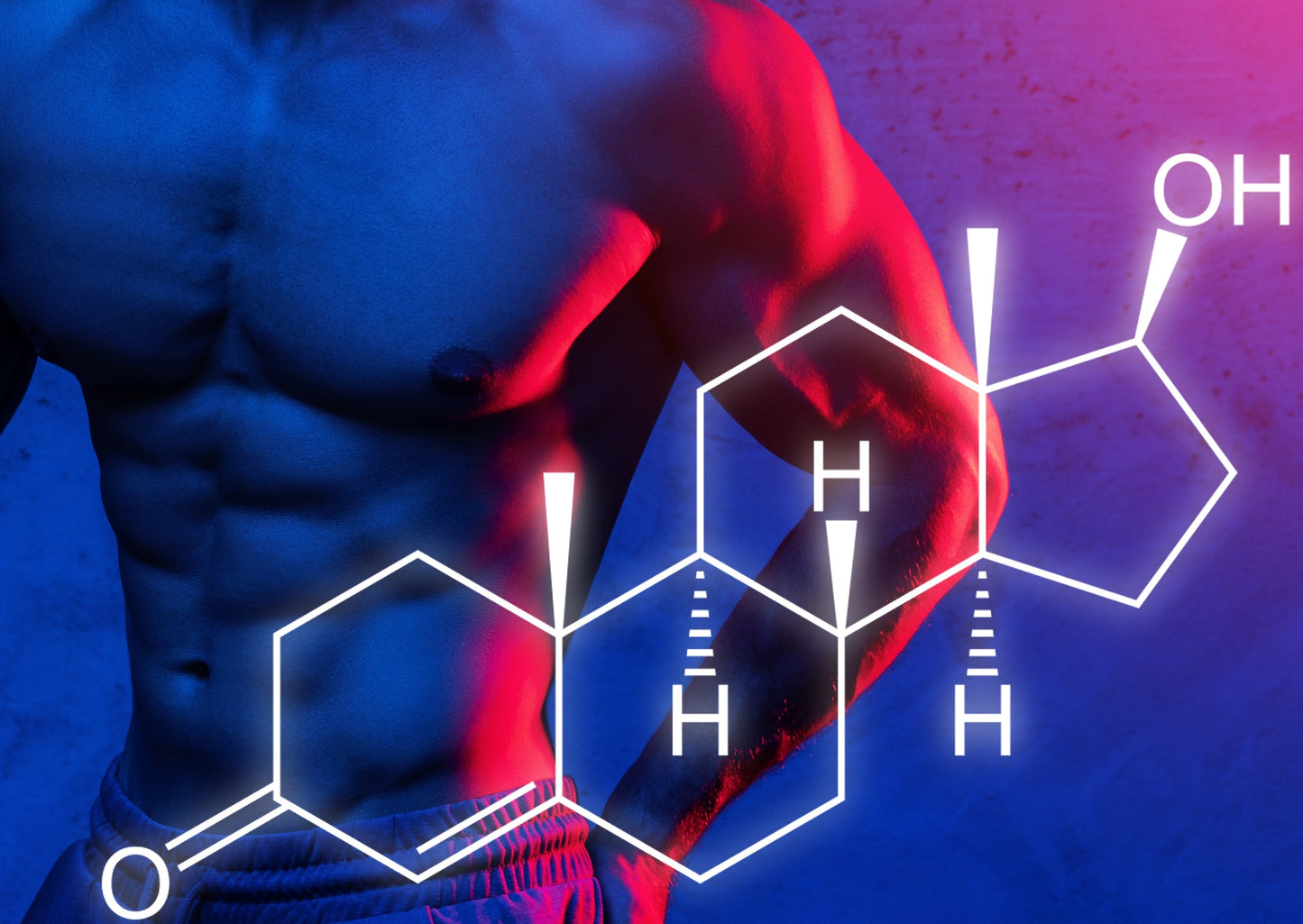
Kaj je Testosteron? -
Razumevanje ključnega moškega hormona
Testosteron je vitalni hormon, ki igra ključno vlogo v moškem telesu. Odgovoren je za širok spekter funkcij, od vzdrževanja mišične mase in gostote kosti do uravnavanja razpoloženja in kognitivnih funkcij. V tem obsežnem blogu bomo raziskali pomen testosterona za zdravje moških in razpravljali o tem, kako zagotoviti optimalno raven tega hormona.
Zakaj je testosteron tako zelo pomemben?
Testosteron igra ključno vlogo pri različnih vidikih moškega zdravja. Tukaj je nekaj ključnih funkcij tega hormona:
- Zdravje mišic in kosti
- Testosteron je nujen za ohranjanje mišične mase in moči. Spodbuja sintezo beljakovin, ki je potrebna za rast in obnovo mišic. Poleg tega testosteron pomaga ohranjati gostoto kosti, kar zmanjšuje tveganje za osteoporozo in zlome.
- Spolna funkcija
- Testosteron je tesno povezan s spolno funkcijo in libidom. Ima vlogo pri razvoju in vzdrževanju spolnih organov, pa tudi pri proizvodnji sperme. Nizke ravni testosterona lahko povzročijo zmanjšan spolni nagon, erektilno disfunkcijo in neplodnost.
- Razpoloženje in kognitivne funkcije
- Testosteron vpliva tudi na razpoloženje in kognitivne funkcije. Optimalne ravni testosterona so povezane z izboljšanim razpoloženjem, večjo motivacijo in boljšimi kognitivnimi sposobnostmi, vključno s spominom in koncentracijo.
- Energija in utrujenost
- Testosteron igra pomembno vlogo pri energijski presnovi ter vpliva na splošno vitalnost in moč. Nezadostna raven testosterona lahko privede do opaznega zmanjšanja vzdržljivosti in energije, kar se kaže kot stalna utrujenost in zmanjšan občutek vitalnosti.
Kako vzdržujemo zdravo raven testosterona?
Raven testosterona naravno upada s starostjo, lahko več sprememb življenjskega sloga pomaga ohranjati zdravo raven tega hormona:- Redno telovadite
- V svojo rutino vključite dosledno telesno aktivnost s poudarkom na vadbi za moč, da naravno povečate proizvodnjo testosterona. Optimalne rezultate lahko dosežete, če si prizadevate za najmanj 150 minut zmerno intenzivne aerobne vadbe ali 75 minut visoko intenzivne vadbe tedensko.
- Ohranjajte zdravo težo
- Ohranjanje zdrave telesne teže je ključnega pomena za optimizacijo ravni testosterona, saj je znano, da debelost in odvečna telesna maščoba prispevata k zmanjšani proizvodnji testosterona. Dosezite in vzdržujte zdravo telesno težo z uravnoteženo prehrano, bogato z bistvenimi hranili, in redno telesno dejavnostjo. Vključite živila z visoko vsebnostjo vitamina D, cinka in omega-3 maščobnih kislin, kot so mastne ribe, listnata zelenjava in oreščki, za katere je znano, da podpirajo sintezo testosterona.
- Zagotovite si dovolj spanca
- Kakovosten spanec je ključen za uravnavanje hormonov, vključno s testosteronom. Prizadevajte si za 7-9 ur neprekinjenega spanca vsako noč, da zagotovite optimalno raven testosterona.
- Obvladajte stres
- Kronični stres lahko negativno vpliva na raven testosterona. Vadite tehnike obvladovanja stresa, kot so meditacija, vaje globokega dihanja ali ukvarjanje s hobiji, da zmanjšate stres in podpirate hormonsko ravnovesje.
- Modro izbirajte športna oblačila
- Bodite pozorni na endokrine motilce, kot je BPA, v športnih oblačilih in v oblačilih na splošno. Odločite se za organske tkanine, kot so oblačila za vadbo AlteonWear iz TENCEL, in se izogibajte sintetičnim, kot so poliester, najlon in spandeks.
Zaključek
Testosteron je vitalni hormon, ki igra ključno vlogo pri zdravju moških. Testosteron je vključen v številne telesne funkcije, od ohranjanja zdravja mišic in kosti do uravnavanja razpoloženja in kognitivnih funkcij. Z zdravim življenjskim slogom, ki vključuje redno vadbo, ustrezno prehrano, dovolj spanja in izbiro športnih oblačil brez toksinov, lahko moški podpirajo optimalno raven testosterona in splošno dobro počutje.
